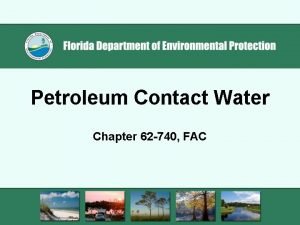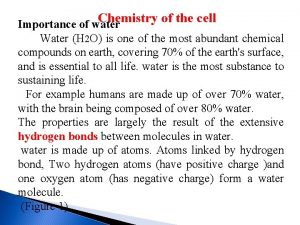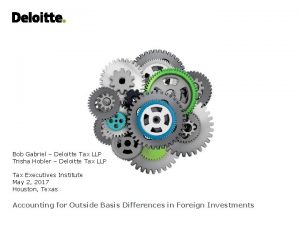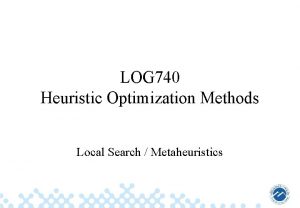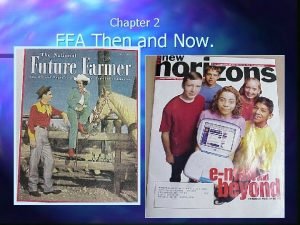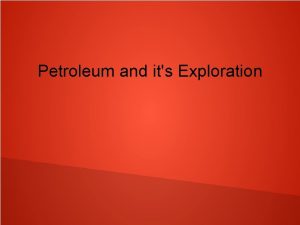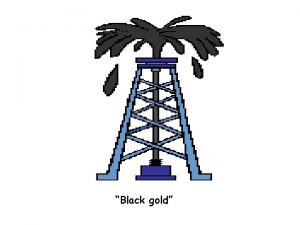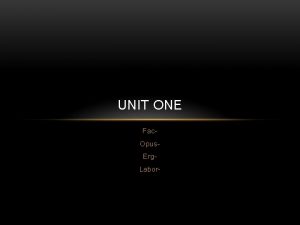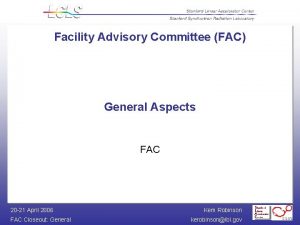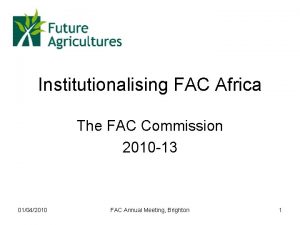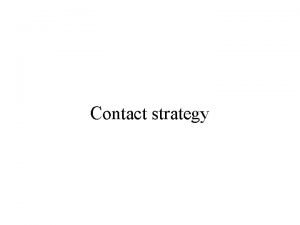Petroleum Contact Water Chapter 62 740 FAC What









- Slides: 9

Petroleum Contact Water Chapter 62 -740, FAC

What is PCW? • “Petroleum Contact Water” or “PCW” means water containing product [Rule 62 -740. 030, FAC]. • Examples: • Condensate from underground aboveground petroleum tanks; • Water bottoms or drawdown water removed from a petroleum storage tank system as defined in Chapters 62761 and 62 -762, FAC; • Product, or water in contact with product which displays a visible sheen contained in spill containment and secondary containment areas associated with petroleum tank storage, petroleum transportation, and petroleum distribution systems; however, stormwater that displays a visible sheen contained in spill containment and secondary containment areas associated with a diesel or No. 2 fuel storage tank, transportation or distribution system is not PCW.

What is PCW? • Examples (Continued): • Petroleum tank filler sump and dispenser sump water; • Recovered product or water in contact with product, which does not contain hazardous constituents other than petroleum, from first response actions to petroleum spills or from petroleum contamination site cleanups conducted under Chapter 62 -770, FAC; • Aboveground petroleum tank seal leakage water; • Pumpable liquids from petroleum tank cleaning operations.

What is NOT PCW? • Examples of materials that do not meet the definition of PCW include: • • Equipment or vehicle wash water; Bilge water; Separated solids from tank cleaning operations; Groundwater contaminated with hazardous constituents other than PCW; • Wastewaters regulated or permitted under other applicable Department rules or standards, such as Chapters 62 -620 and 62 -660, FAC.

What is a PCW Transporter? • A PCW Transporter is a person who transports PCW off-site by rail or over public roads. A Transporter who is not a producer or who does not engage in the ultimate recovery of product from PCW must not store PCW on-site for more than 35 days. [Rule 62 -740. 200, FAC]

Notification Requirements • A Transporter of PCW destined for recovery must be a hazardous waste Transporter in compliance with Chapter 62 -730, FAC, or receive an EPA ID number by notifying the Department on form 62 -730. 900(a)(b) of its intent to transport PCW. [Rule 62 -740. 200, FAC]

Record Keeping Requirements • A Transporter is required to keep an operating record of the following PCW shipment information for 3 years and make the records available to the Department upon request: • • • Name and location of the person shipping the PCW; Date the PCW was picked up; Volume of the PCW transported; Name and location of the person receiving the PCW; Delivery date; A copy of the shipping paper [Rule 62 -740. 200, FAC]

Storage Container Requirements • A Transporter that stores PCW in containers and tanks not required to be registered in accordance with Chapters 62 -761 or 62 -762, FAC, must comply with the following: • Ensure that the container or tank is made of or lined with material that is compatible with PCW; • Keep the container or tank closed and stored in a safe manner; • Label or mark the container or tank clearly with the words “Petroleum Contact Water” and the date when PCW accumulation first begins after the existing PCW in the container or tank has been removed; • Not handle the container or tank in a manner that may rupture it or cause it to leak; and • Inspect the container or tank for leaks and deterioration at least weekly [Rule 62 -740. 200, FAC].

Questions? Hazardous Waste Program 8800 Baymeadows Way West Suite 100 Jacksonville, Florida 32256 (904) 256 -1700 (904) 256 -1588 fax
